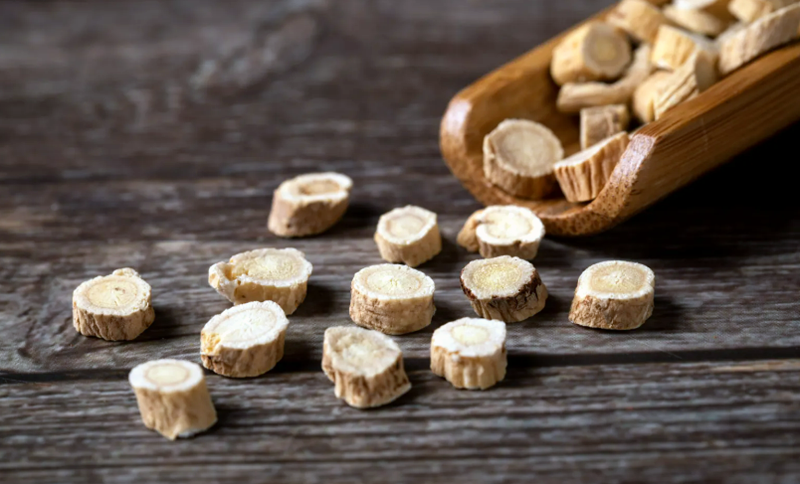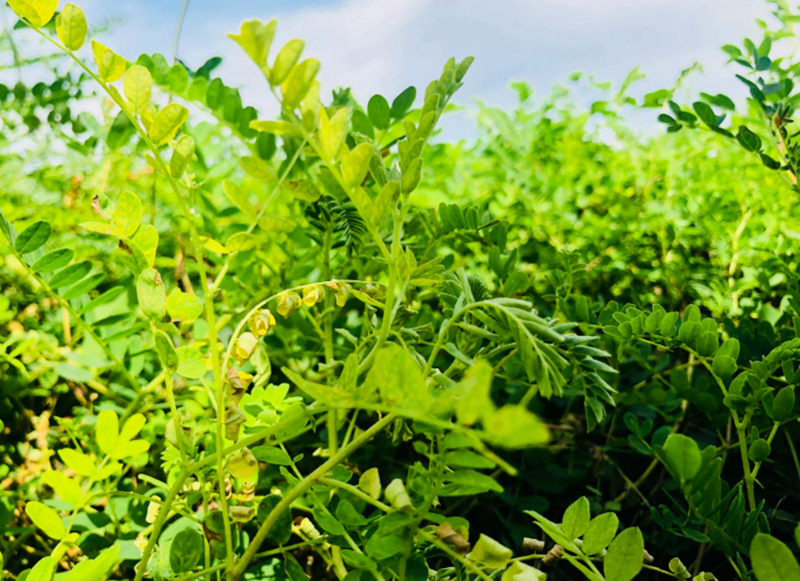Often referred to as the ‘yellow leader’, the Astragalus (Huang Qi) is a perennial plant that has a long history of use in traditional Chinese medicine. Its roots are commonly used as a dietary supplement to promote longevity and immune function. According to traditional Chinese medicine, Astragalus strengthens the Spleen Qi and improves digestion. It can also be used to treat liver problems, tones the immune system and helps the body resist the effects of stress. Using the proper dose of Astragalus Root is a proven way to protect your heart, brain, kidney, liver and lungs.
Astragalus can be found in a number of products, including teas, powders, and liquid extracts. It can be bought in a number of health food stores, as well as reputable online herbal stores. Traditionally, astragalus has been used to treat colds and flus, but studies have also been done to test its effects on heart disease, cancer, lung disease, and more. A 2014 review found that Astragalus species might have a positive effect on chronic kidney disease. Whether you’re looking for the answer to the question is Astragalus root good for blood sugar, you’re not alone. Millions of people are interested in finding out if Astragalus is beneficial for their blood sugar.
Lower blood sugar
Astragalus polysaccharide (APS) is one of the active components of Astragalus. Experimental studies on mice showed that APS could reduce postprandial blood glucose in type 2 diabetic rats by inhibiting α-amylase activity. It can also partially repair the rat islet atrophy caused by diabetes, increase the volume of islet, enhance the islet beta cell proliferation and increase the number of islet beta cells. In addition, compared with metformin, although short-term treatment with astragalus polysaccharide was not significant in the intervention of fasting blood glucose in type 2 diabetic rats, long-term treatment could significantly reduce fasting blood glucose, and significantly regulate the symptoms of “polydipsia, polyuria, polydipsia, weight loss” and lipid metabolism disorders in rats.
Uncontrolled blood sugar will affect the heart, kidney, nerve and other tissues and organs in the later stage of diabetes, resulting in complications such as foot, kidney, vision damage and so on. Astragaloside IV is one of the main medicinal components of astragaloside. Studies have shown that astragaloside IV can significantly reduce blood glucose and blood lipid, enhance antioxidant capacity of rats, and regulate the pathological changes of myocardial and liver tissue in experimental diabetic rats.
Increases insulin sensitivity in skeletal muscle
Traditionally, Astragalus membranaceus has been used in traditional Chinese medicine (TCM) as an anti-diabetic herb. Various phytochemical constituents of Astragalus have been studied for their pharmacological activity in type 1 and 2 diabetes mellitus (DM). In this study, the effects of Astragalus polysaccharide (APS) on insulin-sensitizing of adipocytes were investigated. APS promoted the proliferation of 3T3-L1 preadipocytes in a dose-dependent manner. The mRNA expression of Glut4 and C/EBPa was increased in the APS treatment group. In addition, the adipocytes of the APS treated group displayed better insulin sensitivity.
Whether it’s to control blood sugar levels or prevent diabetes, Astragalus is a powerful herbal supplement that can provide health benefits. In addition, astragalus when used in conjunction with other Chinese herbs such as mulberry leaves can helps to lower blood sugar levels. In our daily life, we can do more such as diet and aerobic exercise after meals. Of course, taking supplements containing astragalus extract is a good choice.




